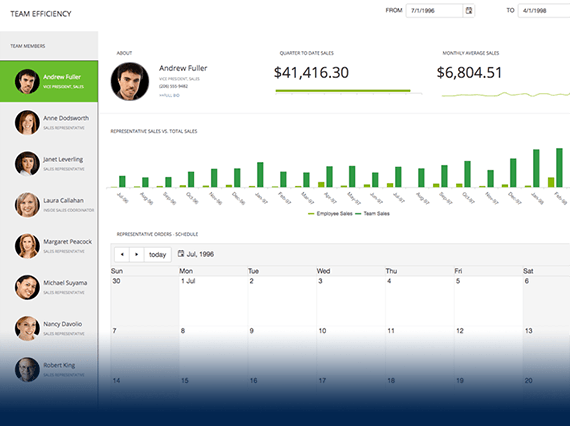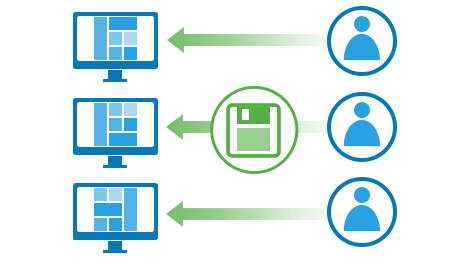
UI for ASP.NET AJAX
ASP.NET AJAX Persistence Framework
- Easily preserve and store the state of ASP.NET AJAX controls with the Telerik Persistence Framework, allowing you to arrange your apps based on specific user's preferences.
- Part of the Telerik UI for ASP.NET AJAX library along with 120+ professionally designed UI components.
- Includes support, documentation, demos, virtual classrooms and more!

-
Save Settings Anywhere and in Any Format
Implement custom storage and serialization providers to save data anywhere and in any format or just use the default settings of Persistence Framework and save in an XML format and in the App_Data folder of the application.
-
Get Full Control Over What to be Persisted
Save time when configuring what to persist on your pages - choose between persisting by control ID, control type or control instance depending on the combination and amount of Telerik controls you use. -
Persist Custom Key-Value Settings
Use the rich server-side API to easily persist settings that are not supported out-of-the-box. -
Visual Studio Integration and Design-time Support
Install Telerik UI for ASP.NET AJAX, the suite containing RadPersistenceFramework, to get it available in your Visual Studio Toolbox. Drag and drop it onto the design surface and use the SmartTag, the Properties Window or the rich Design-Time wizards to codelessly configure the framework and make it fully functional. -
High Performance with Large Number of Controls
Rest assured that saving the settings of a large number of controls will not impact the performance of your application negatively. Unlike its rival frameworks, RadPersistenceFramework doesn’t rely on reflection to save and load the settings, which greatly improves the application’s responsiveness. -
Save and Load Settings per User
Use the Storage Provider Key to relate certain settings to individual users and load them the next time the same user logs in.
All ASP.NET AJAX Components
Data Management
- Spreadsheet
- DataForm
- ClientDataSource
- TreeList
- PivotGrid
- OData DataSource
- ListView
- ListBox
- Filter
- Data Pager
- Grid
Scheduling
Layout
- Badge
- Avatar
- Card
- Wizard
- Device Detection Framework
- Page Layout
- Window
- ToolTip
- Splitter
- Notification
- MultiView
- Dock
Interactivity & UX
Theming
Media
Editors
Data Visualization
- Pyramid Chart
- Vertical Area Chart
- Vertical Line Chart
- ArcGauge
- CircularGauge
- Timeline
- Map
- Diagram
- Rotator
- Org Chart Updated
- Gauge
- BinaryImage
- Barcode
- Chart (HTML5)
File Upload & Management
Spell Checking
Navigation
- SmartPasteButton New
- Speech-to-Text Button
- ChipList
- Chip
- Floating Action Button
- Stepper
- SplitButton
- Switch
- Breadcrumb
- Button
- PanelBar
- RibbonBar
- SearchBox Updated
- TabStrip
- ToolBar
- SiteMap Updated
- TreeView
- Menu
Performance
Ajax
Social
SharePoint Web Parts
Mobile Widgets
Document Processing
